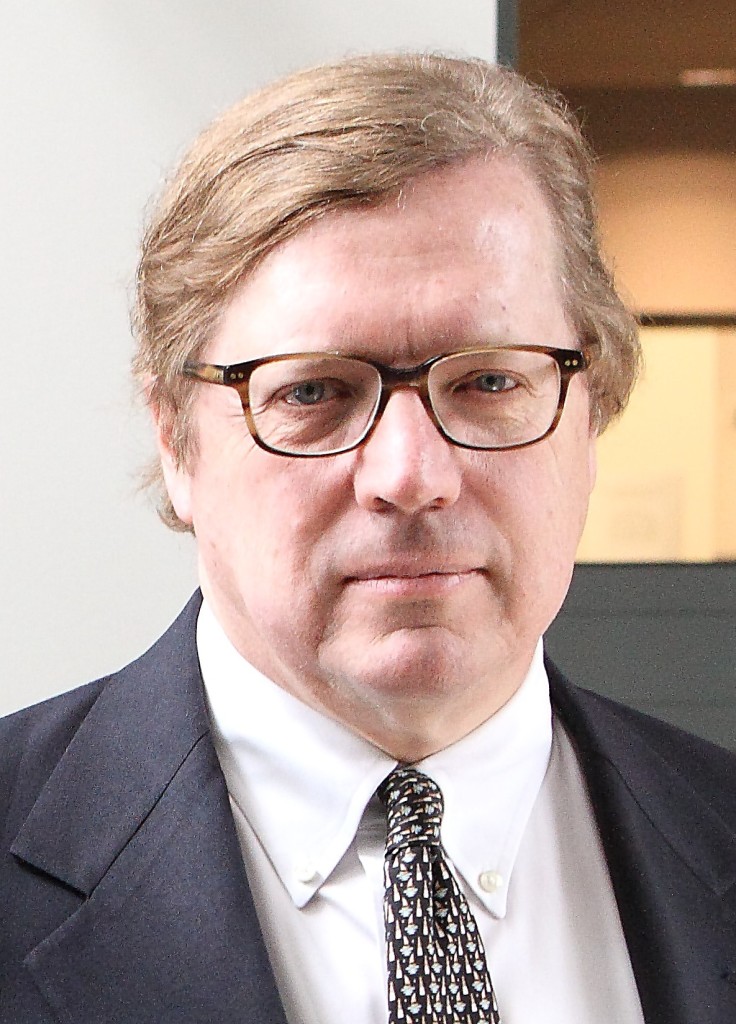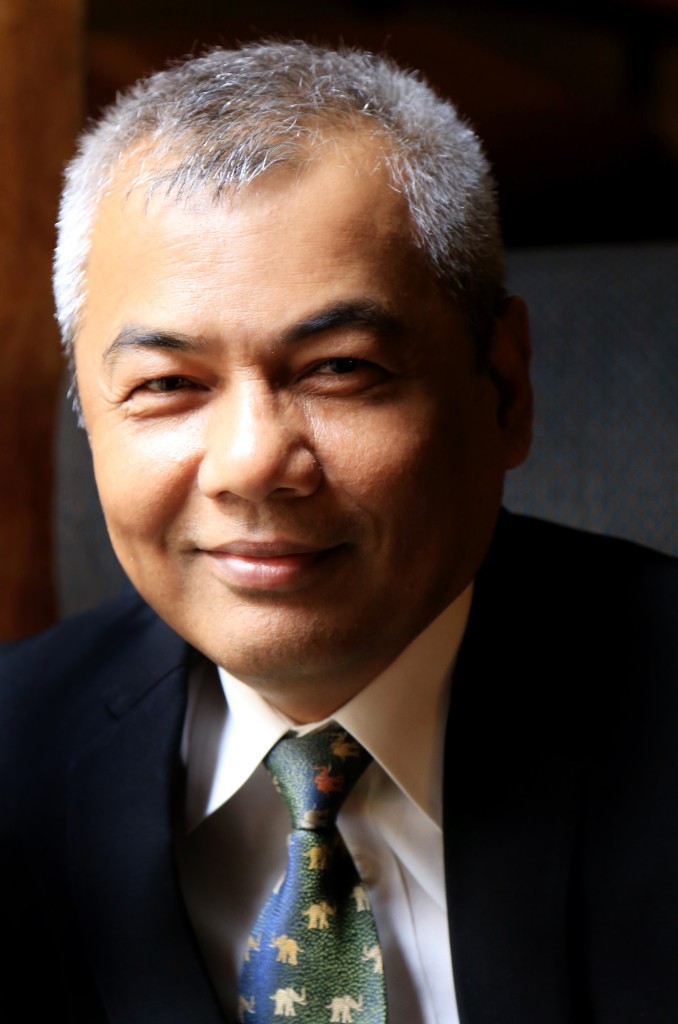Contributor Bios
David Scheffer is the Mayer Brown/Robert A. Helman Professor of Law and Director of the Center for International Human Rights at Northwestern University School of Law in Chicago, Illinois. He teaches International Human Rights Law and International Criminal Law. He was previously the U.S. Ambassador at Large for War Crimes Issues (1997-2001) and led the U.S. delegation in U.N. talks establishing the International Criminal Court.
During his ambassadorship, Scheffer negotiated and coordinated U.S. support for the establishment and operation of international and hybrid criminal tribunals (including the Extraordinary Chambers in the Courts of Cambodia) and U.S. responses to atrocities anywhere in the world. He also headed the Atrocities Prevention Inter-Agency Working Group. During the first term of the Clinton Administration, Scheffer served as senior adviser and counsel to the U.S. Representative to the United Nations, Dr. Madeleine Albright, and served from 1993 through 1996 on the Deputies Committee of the National Security Council.
Scheffer has published extensively on international legal and political issues and appears regularly in the national and international media.
Scheffer is a member of the New York and District of Columbia Bars, the American Society of International Law (formerly serving on the Executive Council), the Council on Foreign Relations, and the Chicago Committee of Human Rights Watch, and is the former Chairman of the Board of Directors of the International Law Students Association (2004-2008).
Youk Chhang – dccam@online.com.kh
Youk Chhang is the Executive Director of the Documentation Center of Cambodia (DC-Cam) and a genocide survivor of the Khmer Rouge’s “killing fields.” He became DC-Cam’s leader in 1995, when the Center was founded as a field office of Yale University’s Cambodian Genocide Program to conduct research, training and documentation relating to the Khmer Rouge regime. Chhang continued to run the Center after its inception as an independent Cambodian NGO in 1997 and is currently building on DC-Cam’s work to establish the Sleuk Rith Institute, a permanent hub for genocide studies in Asia, based in Phnom Penh.
Before leading DC-Cam, Chhang managed human rights and democracy training programs in Cambodia for the U.S.-based International Republican Institute and assisted the Electoral Component of the UN Transitional Authority in Cambodia (UNTAC). From 1989 to 1992, he worked on crime prevention in Dallas, Texas. Chhang is a Senior Research Fellow at the Center for the Study of Genocide, Conflict Resolution, and Human Rights at Rutgers University-Newark. He is also the co-editor of Cambodia’s Hidden Scars: Trauma Psychology in the Wake of the Khmer Rouge (2011) and the author of multiple articles and book chapters on Cambodia’s quest for memory and justice. He is also the executive producer of a new documentary film entitled A River Changes Course (2012) (www.ariverchangescourse.com) about the changing social, economic, and environmental landscape in Cambodia.
Chhang received the Truman-Reagan Freedom Award from the Victims of Communism Memorial Foundation in Washington, DC in 2000. He was also named one of TIME magazine’s “60 Asian heroes” in 2006 and one of the “Time 100” most influential people in the world in 2007 for his stand against impunity in Cambodia and elsewhere.
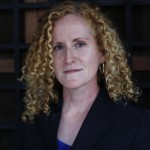
Anne Heindel – anne.heindel@gmail.com
Anne Heindel has been a Legal Advisor to the Documentation Center of Cambodia (DC-Cam) since 2007 and is co-author of “Hybrid Justice: The Extraordinary Chambers in the Courts of Cambodia,” to be published by the University of Michigan Press in 2013. Previously, she was Assistant Director of the War Crimes Research Office at American University, Washington College of Law, where she supervised legal research and writing on new questions of international criminal law for clients including the International Criminal Court, the Special Court for Sierra Leone, the ECCC, and the Special Panels for the prosecution of serious crimes in East Timor. Heindel holds an LL.M in international studies from New York University School of Law and a J.D. from the University of California at San Francisco, Hastings College of the Law.
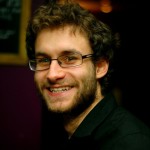
Simon Crowther
Simon Crowther is a trainee barrister and writer. He has previously contributed articles toThe Guardian and The New Internationalist, focusing on the use of classified evidence in judicial proceedings. Simon holds an LL.M. in International Human Rights Law from Northwestern University, where he studied on a Fulbright Scholarship. He also holds a Graduate Diploma in Law from City University London, and a BA in International Relations and Politics from the University of Sheffield.
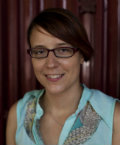
Mary Kozlovski – mary.kozlovski@gmail.com
Mary Kozlovski is a journalist and editor who has been based in Phnom Penh since January 2011 when she began working as a national news reporter and sub-editor at The Phnom Penh Post. Since March 2012, she has been a freelance journalist covering the ECCC, regional and national politics, legal issues, land rights and health for local and international media, including Deutsche Presse-Agentur (dpa), Deutsche Welle, Radio Netherlands Worldwide – International Justice Section, Radio Australia, Southeast Asia Globe, and Global Insight,the magazine of the International Bar Association. Mary has also traveled to Bangladesh to report on the International Crimes Tribunal, a domestic war crimes court in Dhaka. She started writing for Cambodia Tribunal Monitor in August 2012. Mary regularly edits for local publications in Phnom Penh and is treasurer of the Overseas Press Club of Cambodia. She has a BA in Media and Communications and Political Science from the University of Melbourne, Australia.

Doreen Chen – doreen@destinationjustice.org
Doreen Chen is an international lawyer specializing in human rights, international criminal law, and international humanitarian law. Currently based in Phnom Penh, Doreen serves as a Destination Justice senior consultant and chairs its board. She also teaches various international law and human rights courses at Cambodia’s Royal University of Law and Economics. She previously coordinated the ECCC Handbook on Criminal Procedure Project and served with the prosecution at the Khmer Rouge tribunal. Doreen has researched international criminal law for Human Rights Watch, Columbia Law School, and Sydney Law School, held human rights advocacy leadership roles with Amnesty International and Oxfam, and worked as an advisory lawyer for the international commercial law firm Norton Rose. She is also a co-founder of the Asia Pacific Youth Network, a forum working in partnership with Amnesty International which fosters collaboration between human rights defenders around the region. Doreen has an LL.M. with honours and a Certificate in International and Comparative Law from Columbia Law School, as well as first class honours degrees in both Government and International Relations and Law from the University of Sydney. She is admitted to the Supreme Court of New South Wales, Australia.

John D. Ciorciari –john_ciorciari@post.harvard.edu
John D. Ciorciari is an assistant professor at the University of Michigan’s Ford School of Public Policy. His teaching and research focus on international law and politics, particularly in Asia. Since 1999, he has been a pro bono legal advisor to the Documentation Center of Cambodia, which promotes memory and justice with respect to the abuses of the Khmer Rouge regime. He is the author of The Limits of Alignment (Georgetown University Press, 2010), which examines foreign policy dilemmas facing Southeast Asian states as they navigate relations with the great powers and co-editor with Anne Heindel of On Trial: The Khmer Rouge Accountability Process (Documentation Center of Cambodia, 2009).
Before joining the Michigan faculty, he held postdoctoral fellowships at the Asia-Pacific Research Center and Hoover Institution, both at Stanford University. He served as a policy official covering Asia in the U.S. Treasury Department between 2004 and 2007. He has also been a Visiting Research Fellow at the Rajaratnam School of International Studies in Singapore and attorney at the law firm of Davis Polk & Wardwell. He is an Asia 21 fellow of the Asia Society and term member of the Council on Foreign Relations. He holds an A.B. and J.D. from Harvard and M.Phil. and D.Phil. from Oxford.
David Chandler – dpchandler@mac.com
David Chandler, an emeritus professor of History at Monash University in Australia, has written seven books about Cambodian history and politics, the latest of which (2007) is the 4th edition of A History of Cambodia, originally published in 1983. Chandler is currently an honorary research associate at the Monash Asia Institute.

Alex Hinton – ahinton@andromeda.rutgers.edu
Alex Hinton is Director of the Center for the Study of Genocide and Human Rights and Associate Professor of Anthropology and Global Affairs at Rutgers University, Newark. He is the author ofWhy Did They Kill? Cambodia in the Shadow of Genocide (California, 2005) and three edited collections: Annihilating Difference: The Anthropology of Genocide (California, 2002), Genocide: an Anthropological Reader (Blackwell, 2002), and Biocultural Approaches to the Emotions (Cambridge, 1999). He is currently working on several other book projects, including two edited volumes related to genocide, Genocide: Truth, Memory, and Representation and Local Justice, and a single-authored book on the politics of memory and justice in the aftermath of the Cambodian genocide. Professor Hinton lived in Cambodia from 1994-1995 and continues to return there to visit and do research.
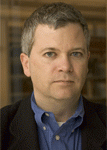
Ronald Slye – slye@seattleu.edu
Ronald C. Slye is an Associate Professor of Law and Director of International and Comparative Law Programs at Seattle University School of Law, where he teaches in the area of public international law, international human rights law, international criminal law, and transitional justice. He is also Director of the Center for Global Justice at Seattle University, and Honorary Professor on the law faculty at the University of the Witwatersrand in South Africa. He is the author or co-author of numerous articles and books in the areas of international human rights law, poverty law, and environmental law, and is currently writing a book on the legitimacy of amnesties granted to individuals responsible for gross violations of human rights. He most recently published the casebook, International Criminal & Its Enforcement (Foundation Press, 2007) (with Beth Van Schaack). From 1997 to 2000 he was a consultant to the South African Truth and Reconciliation Commission, advising them on issues of human rights and international law. From 1993 to 1996 he was the Associate Director of the Orville H. Schell, Jr. Center for International Human Rights at Yale Law School, and co-taught Yale’s international human rights law clinic. Professor Slye received a J.D. from Yale Law School in 1989, a M.Phil in International Relations from the University of Cambridge in 1985, and a B.A. in History from Columbia University in 1984.
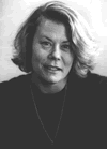
Elizabeth Becker – ebh47@msn.com
Elizabeth Becker is the author of “When the War Was Over; Cambodia and the Khmer Rouge,” which won a Robert F. Kennedy Book Award prize and has been translated into Khmer and French. She began covering Cambodia during the war in 1972 and was one of two journalists to visit the country while the Khmer Rouge were in power and to interview Pol Pot, reporting that was honored by the Overseas Press Club. As a New York Times Washington correspondent, she covered international economics, defense and foreign affairs. She was Senior Foreign Editor of National Public Radio and began her career at the Washington Post. She graduated in South Asian Studies from the University of Washington and is the author of “America’s Vietnam War.” She is a member of the Council of Foreign Relations and a fellow at the German Marshal Fund.

James A. Goldston –jgoldston@justiceinitiative.org
James A. Goldston is executive director of the Open Society Justice Initiative (OSJI), an operational program of the Open Society Institute that promotes rights-based law reform and builds legal capacity worldwide. Before heading the OSJI, James Goldston was legal director of the Budapest-based European Roma Rights Center, where he developed and managed civil rights litigation before the European Court of Human Rights, United Nations treaty bodies, and domestic courts in 15 European countries. He also served as Director General for Human Rights of the Mission to Bosnia-Herzegovina of the Organization for Security and Cooperation in Europe, where he oversaw monitoring, reporting and individual protection activities nationwide. He also spent five years as an Assistant U.S. Attorney in the Southern District of New York prosecuting organized crime.
A graduate of Columbia College and Harvard Law School, Goldston has written widely on issues of human rights and racial discrimination. He has engaged in law reform fieldwork and investigated rights abuses in more than 30 countries in Africa, Asia, Europe, and Latin America.
Tracey Gurd – tgurd@justiceintiative.org
Tracey Gurd serves as the junior legal officer for the OSJI. She has previously worked as a legal academic, a journalist and also as an international policy advisor for the Australian government in both Australia and Central Europe. Gurd is the joint editor of a forthcoming academic collection on women and armed conflict.

Jaya Ramji-Nogales – jaya.ramji-nogales@temple.edu
Jaya Ramji-Nogales is an Assistant Professor of Law at Temple University’s Beasley School of Law, where she teaches Transitional Justice and Evidence. She holds a JD from the Yale Law School and an LLM, with distinction, from the Georgetown University Law Center. Professor Ramji-Nogales has been a member of the Board of Advisors to the Documentation Center of Cambodia (DC-Cam) since 2004. Her first research project with the DC-Cam, conducted in 1997, was published in the Fletcher Forum of World Affairs as Reclaiming Cambodian History: The Case for a Truth Commission (2000). More recently, Professor Ramji-Nogales co-edited, with Professor Beth Van Schaack, a volume of essays entitled Bringing the Khmer Rouge to Justice: Prosecuting Mass Violence before the Cambodian Courts (Mellen Press 2005).

Beth Van Schaack – BVanSchaack@scu.edu
Beth Van Schaack is Assistant Professor of Law with Santa Clara University School of Law, where she teaches and writes in the areas of human rights, transitional justice, international criminal law, public international law, and civil procedure. She is the co-author of International Criminal Law & Its Enforcement (Foundation Press 2007) (with Ron Slye) and co-editor of a volume of essays entitled Bringing the Khmer Rouge to Justice: Prosecuting Mass Violence before the Cambodian Courts (Mellen Press 2005) (with Jaya Ramji).
Prof. Van Schaack joined the law faculty from private practice at Morrison & Foerster LLP. As a Senior Associate at “MoFo”, Prof. Van Schaack practiced in the areas of commercial law, intellectual property, international law, and human rights. In particular, she was trial counsel for Romagoza v. Garcia, a human rights case on behalf of three Salvadoran refugees that resulted in a plaintiffs’ award of $54.6 million. She was on the criminal defense team for John Walker Lindh, the “American Taliban.”
Prior to entering private practice, Prof. Van Schaack was Acting Executive Director and Staff Attorney with The Center for Justice & Accountability, a non-profit law firm in San Francisco dedicated to the representation of victims of torture and other grave human rights abuses. She was also with the Office of the Prosecutor of the International Criminal Tribunals for the Former Yugoslavia. Since 1995, she has served as a legal advisor to the Documentation Center of Cambodia. Prof. Van Schaack is a graduate of Stanford University and Yale Law School.

Gregory H. Stanton
Dr. Gregory H. Stanton is the James Farmer Professor of Human Rights at the University of Mary Washington, Fredericksburg, Virginia. He is President of Genocide Watch and Chair of the International Campaign to End Genocide. He is President of the International Association of Genocide Scholars.
After practicing international law with Foley and Lardner in Milwaukee, Wisconsin, Dr. Stanton became a Law Professor at Washington and Lee University in 1985. He was a Fulbright Professor of Law at the University of Swaziland in 1989 – 1990. He was a legal advisor to the Ukrainian independence movement from 1988 through 1992, and helped draft the post-communist Ukrainian constitution.
Dr. Stanton served in the State Department from 1992 to 1999, where he wrote the United Nations resolutions that created the International Criminal Tribunal for Rwanda, as well as many other resolutions on human rights and international peacekeeping.
Dr. Stanton was a fellow at the Woodrow Wilson International Center for Scholars in 2001 – 2002. He has been the James Farmer Visiting Professor of Human Rights at the University of Mary Washington since 2003.
Dr. Stanton founded the Cambodian Genocide Project in 1981. He has worked for 26 years to create a tribunal to try the surviving Khmer Rouge leaders. From 2003 – 2007 he has assisted the Cambodian government’s Tribunal Task Force by drafting rules of procedure and evidence and training Cambodian judges and prosecutors for the tribunal.
In 1999, Dr. Stanton founded Genocide Watch and the International Campaign to End Genocide, a coalition of 30 non-governmental organizations in eleven countries on five continents dedicated to preventing, stopping, and punishing genocide. In 2007, he co-founded the inter-religious Alliance to Abolish Genocide.
Stanton has degrees from Oberlin College, Harvard Divinity School, and Yale Law School, and a Doctorate in Cultural Anthropology from the University of Chicago. He has contributed scores of chapters and articles to books and scholarly publications. He is currently completing a book, entitled The Eight Stages of Genocide to be published by the Woodrow Wilson Center Press.

